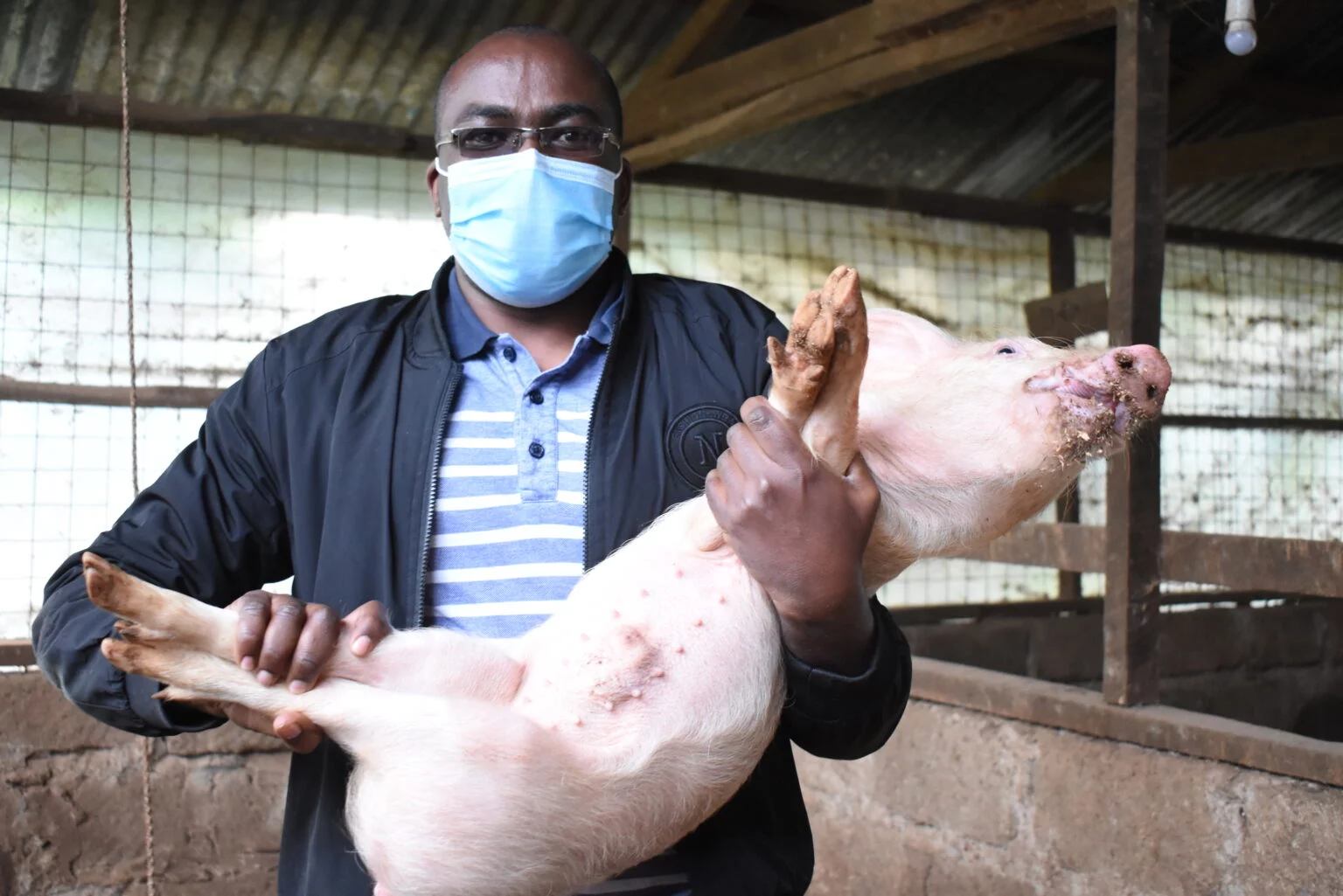The COVID-19 pandemic left many people jobless, among them Benson Wirigi, who lost his job after schools closed during the lockdown period.
Wirigi opted to rear pigs, a decision he doesn’t regret today. Having saved enough from his teaching job, he stepped into the business with a capital of Sh400 000.
The money was partially used to set up the farm in Meru, with the rest used to purchase the pigs.
“I started with five pigs which I bought somewhere in Meru. They were weaners, two months old. I reared them for about six months and sold four to a local slaughter. I preserved the remaining two as my breeding stock and bought a boar to serve them.” He said.
Raphael Kithinji: I made Sh. 16 million from keeping, selling dogs after quitting financial job
While starting up felt costly for Wirigi as he wanted the best structures and good quality pigs, he said the venture is rewarding and has helped him take care of his needs.
He sells piglets to local farmers starting out pig farming and sometimes to slaughterhouses in Meru. The High school maths teacher said the Landrance breed was very prolific as they gave birth to 14-15 piglets, and most of them survived to maturity.
Wirigi also offers training to farmers willing to start pig farming at a free cost. He notes that for one to succeed in the pig business, one must have the right breed, suitable housing, proper feeding, and disease and pest management, among other practices.
On feeds, Wirigi recommends commercial feed over kitchen waste, which is the mostly used by many pig farmers. He makes homemade feeds to reduce production costs.
Amos Nyambane: Graduate Making Millions In Poultry Farming After Lack of Office Job
“Feeding is very critical. For the longest time in history, pigs have been feeding on kitchen refuse and waste from hotels. I do not say they are bad, but their performance is not the same as comparing them with commercial feeds.”
“It is important to have a feeding regime so that even if you are using the kitchen refuse, you supplement a bit with commercial feeds. That way, you are assured of better yields,” he said.
He added the pigsty should always be clean and dry to prevent diseases. It should also be free from rain, sun, and wind with no slippery floor.
Did you love the story? You can also share YOUR story and get it published on Bizna Click here to get started.






